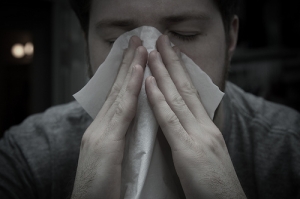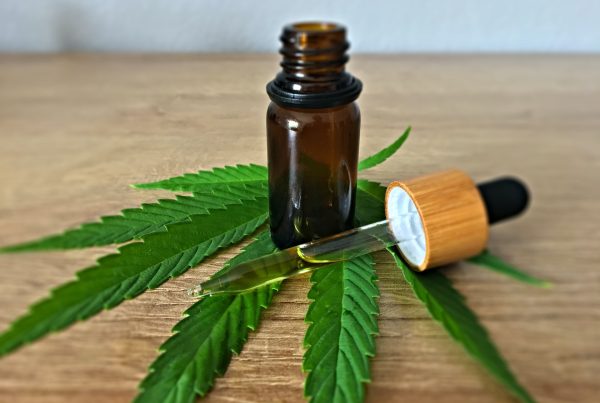
Beat this Allergy season Naturally!
photo credit: William Brawley via photopin cc
Two times a year many people suffer from allergies. Atlanta is a city made up of migrant Northerners who all develop severe allergies the day seasons change: spring and fall during pollen and ragweed season respectively! It’s the same thing, running nose, watery eyes, nasal congestion, and a nagging cough for weeks! It’s the same story two times a year, year after year. Well this year we are going to get an early start and nip it in the bud before it starts!
Supplements:
Probiotic– Ensure you have a probiotic on board to strengthen your immune system. When I started taking probiotics daily, my allergic episodes lasted less than they usually do. This has been my “secret” weapon for the last 2 years!
Vitamin D– Make sure your Vitamin D level is around 60-70, you want to make sure your body is fighting off anything that could be causing you trouble. Talk to your doctor about getting your levels checked to ensure your body is fighting against inflammation.
Quercetin– In an acute episode, add quercetin. It’s found naturally in pineapples, capers, apples, even green tea, and this works as a natural antihistamine so you can avoid taking your otc med like you usually do. It has, in fact, been shown to be better than other mast cell inhibitors can be used for prevention of contact dermatitis as well (1,2). You can start by taking 200mg 3x/day; and there’s always room to increase the dosage.
Butterbur– Add Butterbur, an herbal supplement, to also reduce your allergy symptoms.75mg twice a day will do the trick. It’s been shown to be just as effective in treating itchy watery allergy eyes (3). This herb is also great for migraine prevention so this is one of my favorites for a two in one remedy!
Freeze dried nettle– Try 300mg 2x/day at the onset of symptoms. A study showed an hour after taking supplements, there was a clear benefit and improvement of allergy symptoms (4). This fast acting supplement will be sure to alleviate your symptoms.
Vitamin C- Increase your Vitamin C consumption during allergy season. Taking 2-3g/day and if your allergies are in full effect increase that to 4g/day. Talk to your doctor to make sure you’re not at risk for kidney stones. There is some evidence Vitamin C may decrease nasal and pulmonary reactions to histamine production which trigger allergies (5,6).
Buck wheat honey– Buck wheat honey soothes cough and acts as a natural decongestant. It’s even safe enough to give children older than 1. You can also make a soothing ginger, lemon honey tea out of it to help alleviate your symptoms and it also tastes yummy!
There’s a supplement by Ortho Molecular I like called D-hist. It contains many of the supplements above including stinging nettles, bromelain, NAC, quercetin & Vitamin C. Patients swear by it and it can be cheaper than buying some of these supplements individually without many of the side effects and interactions antihistamines have.
You can also use a Netti Pot at least 2-3x/week or nasal saline 2-3x/day to clear your nasal passages. My personal favorite is something called the “Nas”. Adding Vicks vapor rub to warm water and steaming your face in it with a towel over your head. This always clears up any allergy ailments I have.
If those things are not working, talk to your doctor about antihistamines, decongestants, and cough suppressants. Be careful as some of these agents can increase your blood pressure. Studies have shown that nasal steroids do work well but they have also been shown to increase glaucoma in some. Do your research and stay informed and beat this allergy season naturally!
References:
1. Chirumbolo S. The role of quercetin, flavonols and flavones in modulating inflammatory cell function. Inflamm Allergy Drug Targets. 2010 Sep;9(4):263-85.
2. Weng Z1, Zhang B, Asadi S, Sismanopoulos N, Butcher A, Fu X, Katsarou-Katsari A, Antoniou C, Theoharides TC. Quercetin is more effective than cromolyn in blocking human mast cell cytokine release and inhibits contact dermatitis and photosensitivity in humans. PLoS One. 2012;7(3):e33805. doi: 10.1371/journal.pone.0033805. Epub 2012 Mar 28.
3. Bielory L, Heimall J. Review of complementary and alternative medicine in treatment of ocular allergies. Curr Opin Allergy Clin Immunol. 2003 Oct;3(5):395-9.
4. Paul Mittman. Randomized, Double-Blind Study of Freeze-Dried Urtica dioica in the Treatment of Allergic Rhiniti. Planta Med 1990; 56(1): 44-47.
5. Bucca C, Rolla, G, Oliva, A et al, Effect of Vitamin C on histamine bronchial responsiveness of patients with allergic rhinitis. Amm Allergy 1990; 65:311-314.
6.Fortner, BR II, Danziger RE, Rabinowtz PS, et al. The effect of ascorbic acid on cutaneous and nasal response to histamine and allergen. J Allergy Clin Immunol. 1982;69:484-488.


